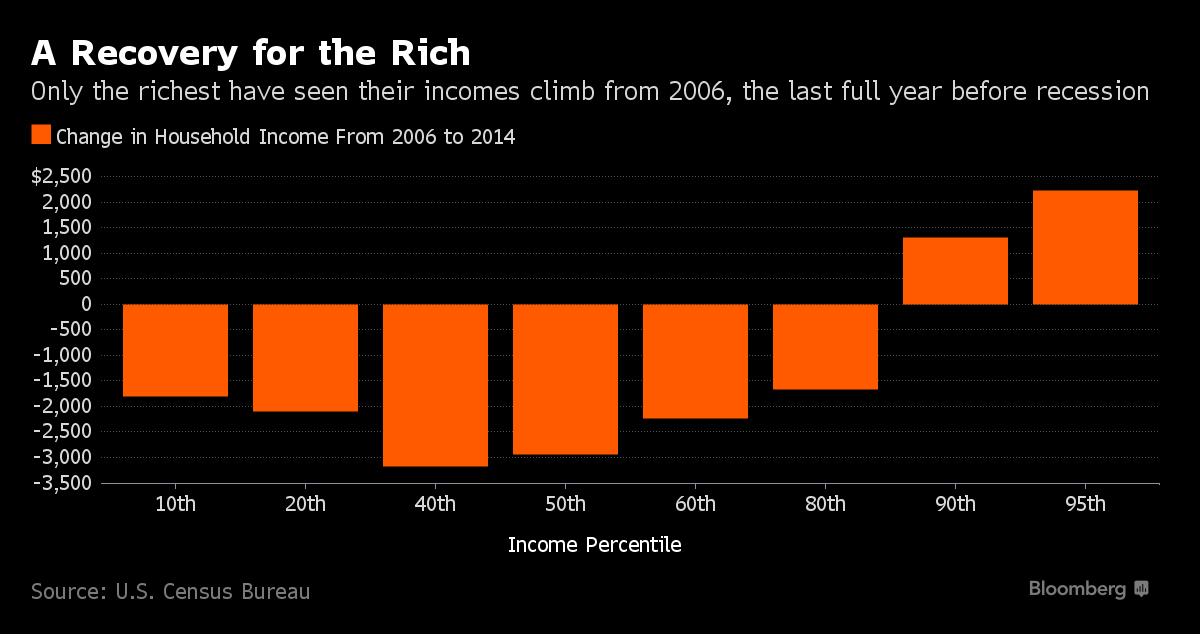
Before I start this evening, I want to add one follow-up to last night’s piece on Berkshire Hathaway. ?My summary was that it wasn’t a great year, and the profit margins are likely to shrink in insurance, because BRK is being conservative there. ?So why do I still own it for my clients and me?
BRK is trading maybe 8% over the level at which it would begin buying back stock. ?Even in a pessimistic year, I expect BRK’s book value to rise to the level that triggers the buyback. ?Thus, I think the floor for the stock is pretty close below me, and there is a decent possibility that Buffett could do some things with the cash that are even better than buybacks, especially if the market falls into bear territory.
It is positioned well for most market environments, even one where insurance gets hit hard. ?BRK is “the last man standing” in any insurance crisis — they have the ability to prosper when other companies will have their capital impaired, and can’t write as much business as they want.
That’s why I own it.
Long BRK/B for my clients and me
=-=-=-=-=-=-=-=-=-=-=-=-=-=-
Onto tonight’s topic. ?This is partially spurred by an article at Bloomberg.com entitled?Angry Americans: How the 2008 Crash Fueled a Political Rebellion. ?There was one graph that crystallized the article. ?Here it is:

Incomes have not improved for the bottom 80% of Americans over the last decade. ?Before I go on, recognize that the income distribution is not static. ?The same people are not in each decile today, as were in 2006. ?Examples:
- Highly skilled students in a field that is in demand graduate and get jobs that pay well.
- Highly skilled immigrants?in a field that is in demand come to the US?and get jobs that pay well.
- Less skilled people who relied on the private debt culture to keep getting larger no longer have jobs that pay well in finance, construction, real estate, etc.
- Workers and businessman who expected the commodities and crude oil boom to go on forever have seen their prospects diminish.
- Some people have retired and their income has fallen as a result.
- Layoffs have come in some industries because many people did not realize that they were lower skilled workers, and as such the work that they did could be automated or transferred to other countries.
- Manufacturing continues to get more efficient, and we need fewer jobs in manufacturing to produce the same output (or more). ?This is true globally; manufacturing jobs are being reduced globally.
- Technology firms that apply the advantages of the internet gain value, while legacy firms lose value. ?Whole classes of goods go away because they are replaced, and in other cases, some firms find that they can’t price their products to make a decent profit, while other firms can.
- Some effects are demographic, like mothers ceasing work to raise children, or industries with a lot of older workers becoming uncompetitive because their pension plans are too expensive to fund.
- Divorce usually ruins the prospects of the wife, if not the husband.
- Throw in death, disability, substance abuse, and serious diseases.
- And more…
Thus there is a lot of reason to look at the graph and not say, “The rich are getting richer,” but, “Those who are getting rich today are doing so faster than those who were getting rich back in 2006.”
My life is even an example of that… I make less than 30% of what I was making in 2006. ?On an income basis, I’ve gone from the top of the graph to the middle. ?I’m not upset, because I’m debt free, and manage my finances well. ?I’m grateful to have my own little firm, and every client that I have.
Resentment
That said, many feel that the comfortable life that was theirs has been denied to them by forces beyond their control. They think that shadowy elites want to turn previously well-off people into modern serfs.
It’s a tempting thought, because most of us don’t like to blame ourselves. ?Myself included, we all make mistakes. ?Here is a sampling:
- Did we make a bad decision in the industry in which we chose to work? ?The particular firm?
- Did we choose a bad field of study in college? ?Rack up too much student loan debt?
- Did we borrow too much money at the wrong time? ?(Remember, debt is always a risk. ?If you don’t know that, you shouldn’t borrow money.)
- Did you make bad decisions regarding your assets, and get too greedy or fearful at the wrong times?
- Did you spend too much during your good years, and not save enough for the future?
- Did you not buy the insurance that would have protected you from the disaster that hit you?
- Throw in relationship errors, etc.
The truth is, changes in technology, and to a lesser extent demography, affect the entities that we work in, and affect our personal economics as a result. ?There are some politicians blaming immigrants for our problems, and that’s not a major source of our difficulties. ?Most people don’t want to do the work that unskilled immigrants do, and skilled immigrants get hired when there aren’t enough people seeking those positions.
There is a need for retraining, but even that has its difficulties, as technology is changing rapidly enough that more areas may face job reductions. ?Again, this is a global thing. ?Those that think that?making trade less free will help matters are wrong. ?It’s not trade; it’s technology.
Some think that matters can be fixed by changing government taxes and spending. ?That would only help limitedly, if at all. ?Businesses and people can move to other countries. ?In an era of the internet, many more things can move than ever did previously.
Now, if the developed ?countries collaborated to unify tax policies, some of that would end. ?But cheating under such a regime is too tempting, just as Indiana and Wisconsin try to attract businesses to move out of Illinois. ?The relatively healthy governmental entities have advantages that allow them to prosper at the expense of the sick ones.
You’re Going to be Disappointed
Politicians live to promise. ?I can tell you right now that not one of the surviving candidates for President has a realistic proposal that could be voted up by the next Congress or the buyers in the US Treasury market. ?It’s all airy-fairy… just as most politicians have been since we stopped running balanced budgets.
I would encourage you therefore to look at your own situation and resources soberly, and assume that the next government will do nothing better for you than the current one. ?All of the main drivers of what could improve matters for the middle class are outside the power of any individual government, so plan your own situation accordingly and adjust your economic expectations down. ?After all, there is no place in the world that can promise its people prosperity. ?Why should the USA be any different in this matter?

David,
I completely agree with you on not putting faith in politicians, however I believe you are far too sanguine about immigration.
I think it would be much more accurate to say: Most people don?t want to do the work that unskilled immigrants do [at the wages offered], and skilled immigrants get hired when there aren?t enough people seeking those positions [at the wages offered].
Twenty years ago in NYC suburbia, about a third of my neighbors had their lawns professionally tended by native-born Americans. We didn’t because my Dad said we couldn’t afford it. Today, in the same neighborhood, everyone has lawn service because it is much cheaper, but no one on the crews speaks English.
This has happened to all sorts of blue collar work, and professionally I’m seeing it happen to white collar work as well. When I worked at an investment bank, the back- and mid- office was *filled* with H1-Bs and it is incredible that we couldn’t find Americans to do those jobs. Today, at a smaller firm, we hire H1-B accountants; do you really think that accountants are hard to find in NYC?
I speak from the vantage of having plenty of blue collar family, having friends who are “mid-tier” white collar, and personally working in the front office of a PE shop. From my standpoint, it’s hard to view mass immigration as anything other than a dual program of wage suppression and client-voter importation.
Thanks for all you write.